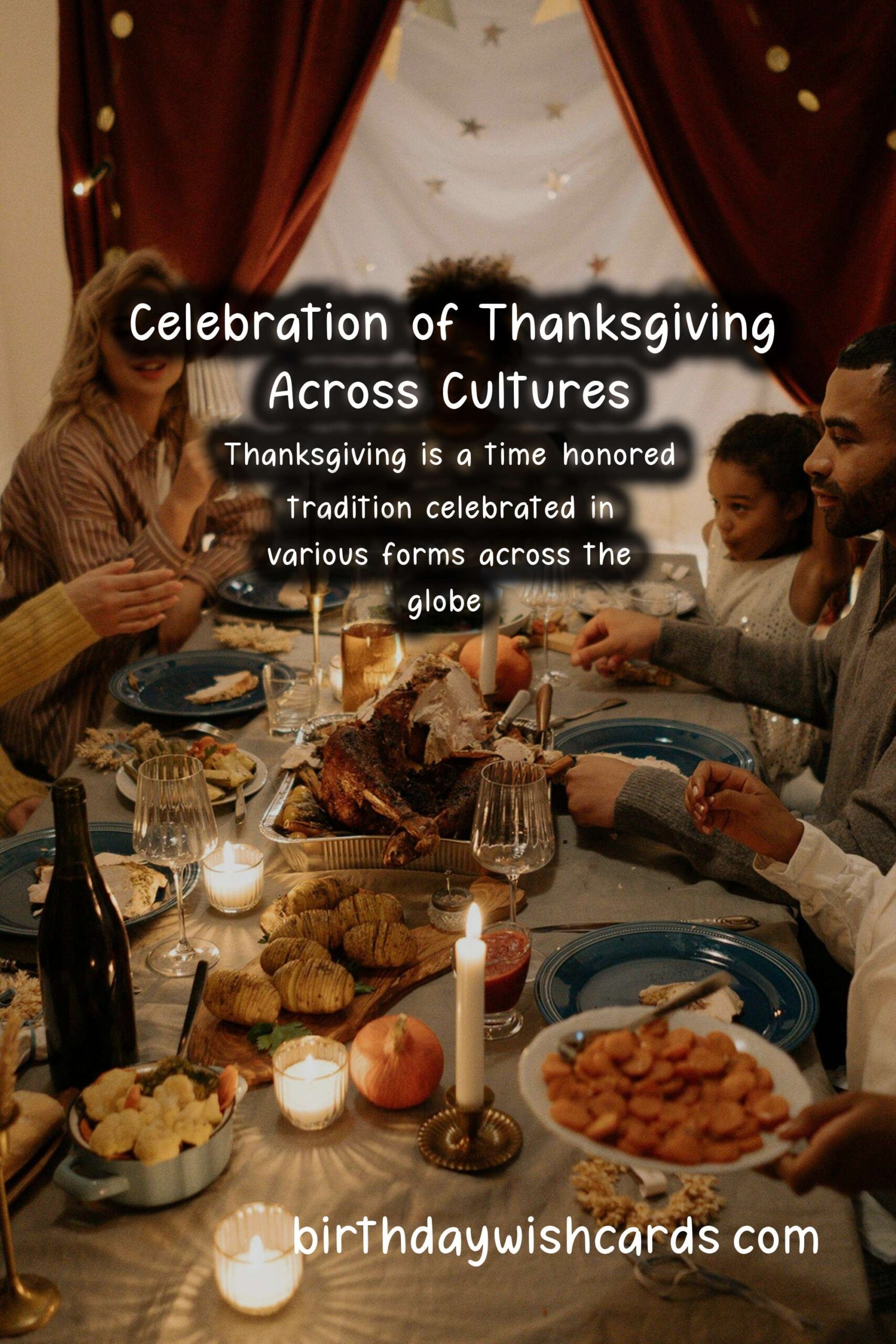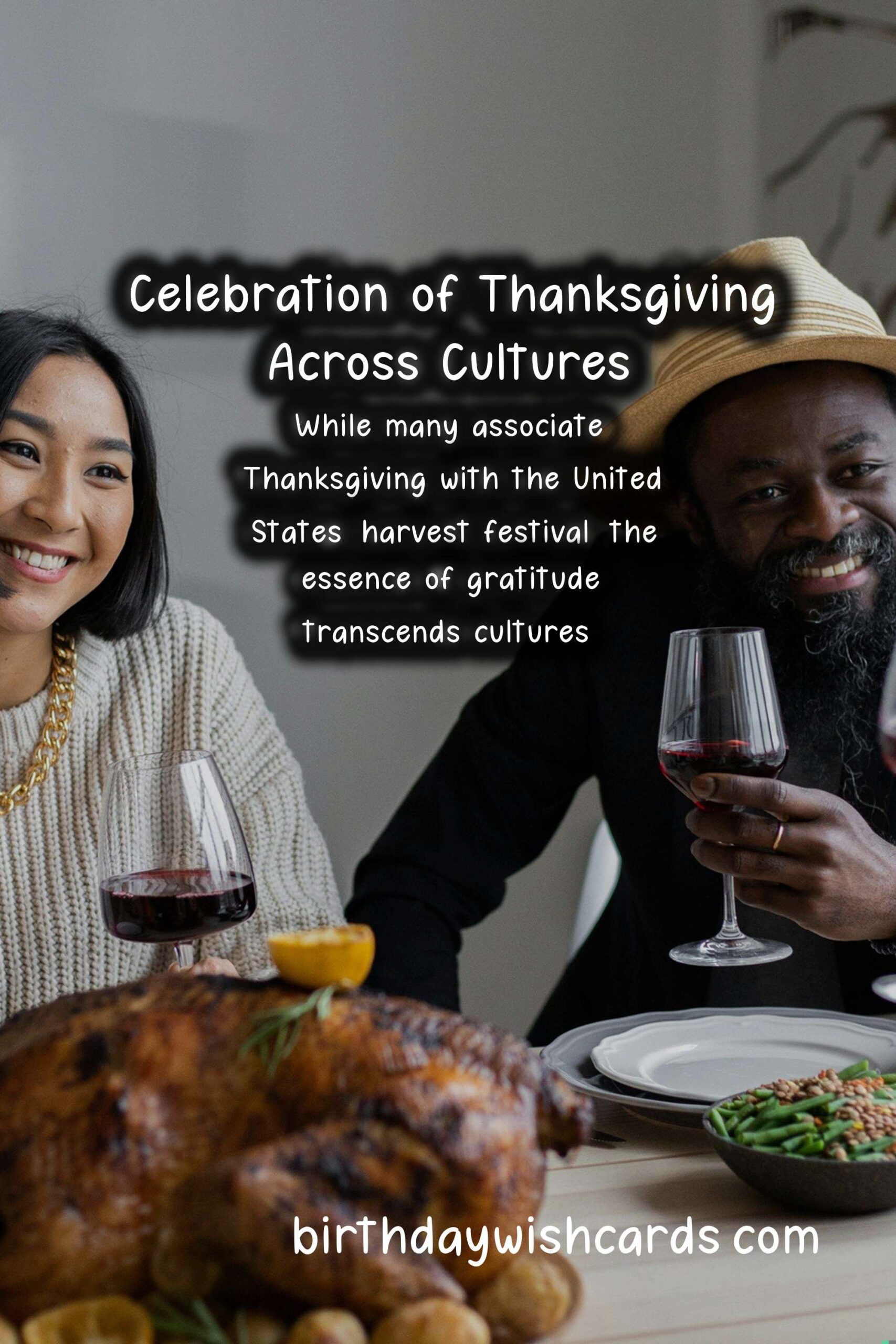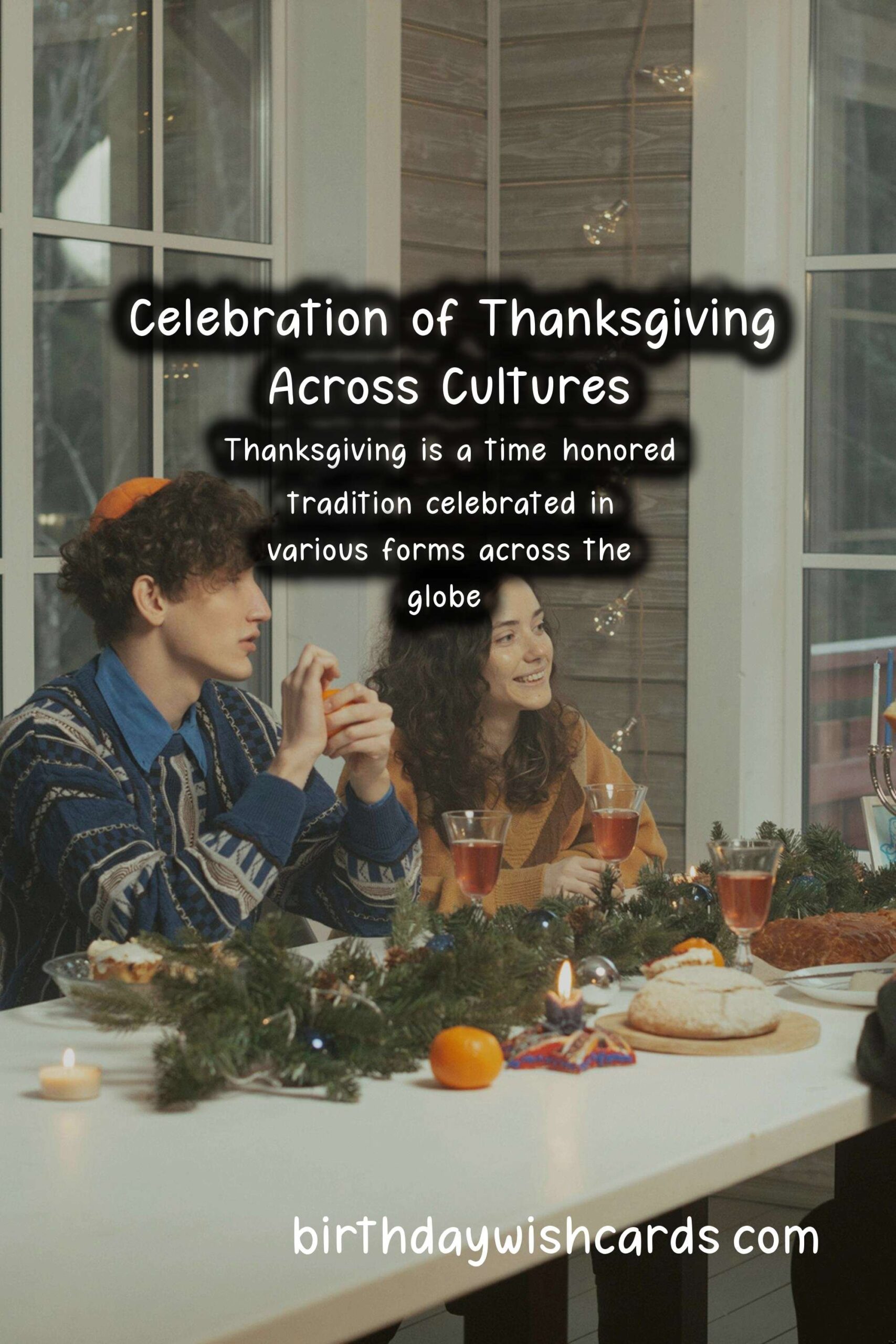The Importance of Thanksgiving in Different Cultures
The Importance of Thanksgiving in Different Cultures
Thanksgiving is a time-honored tradition celebrated in various forms across the globe. While many associate Thanksgiving with the United States’ harvest festival and its unique historical narrative, the essence of gratitude and giving thanks transcends cultural boundaries. This article explores the significance of Thanksgiving in different cultures, highlighting the various ways people express their appreciation and reflect on their blessings.
The American Tradition of Thanksgiving
In the United States, Thanksgiving is celebrated on the fourth Thursday of November. It marks a historical event where Pilgrims and Native Americans came together to celebrate the autumn harvest in 1621. Today, Thanksgiving is characterized by family gatherings, feasting, and sharing moments of gratitude.
The traditional meal often includes turkey, stuffing, cranberry sauce, and pumpkin pie. Beyond the culinary aspects, families often take time to reflect on their accomplishments, express thanks for their loved ones, and engage in charitable acts.
Canadian Thanksgiving
In Canada, Thanksgiving is observed on the second Monday in October. While similar to the American celebration, the roots run differently. Canadian Thanksgiving is thought to have originated from European harvest festivals and the early explorers’ voyages. It serves as a time for Canadians to give thanks for the harvest and blessings of the past year.
Meals typically consist of turkey, stuffing, and seasonal vegetables, similar to the American version, but with regional variations reflecting the diverse Canadian culture.
Thanksgiving in Latin America
Latin American countries have their own unique traditions of giving thanks, often intertwined with their cultural heritage and local festivities. In cultures like that of Mexico, Thanksgiving is celebrated during Día de los Muertos (Day of the Dead), which honors deceased loved ones. Families create altars and share meals to celebrate life and reminisce about those who have passed.
In Brazil, a similar celebration called ‘Dia de Ação de Graças’ also takes place. It is a day dedicated to thanking God for the year’s harvest, usually celebrated with family gatherings and large meals.
Thanksgiving Celebrations in Asia
Asian cultures also partake in festivals that mimic the spirit of Thanksgiving, albeit often with unique cultural nuances. In China, the Moon Festival (or Mid-Autumn Festival) is a time of reunion for families to celebrate the harvest and give thanks to the moon for its light and sustenance.
Similar traditions are evident in Japan during the ‘Niiname-sai’ Festival, where the first harvest rice is offered to the deities as an expression of gratitude. The festival emphasizes unity and thanksgiving for bountiful harvests.
Thanksgiving Festivals in Africa
African nations also celebrate harvests and thankfulness through various festivals. For instance, in Ghana, the ‘Homowo’ festival signifies the end of the hunger season and is celebrated with great exuberance whereby people give thanks for food and blessings received.
Such celebrations often involve traditional dishes, music, and community gatherings, embodying the essential aspect of gratitude that resonates through Thanksgiving traditions globally.
Middle Eastern Celebrations
In the Middle East, the significance of gratitude is illustrated through festivals such as Eid al-Fitr and Eid al-Adha. Though primarily Islamic holidays, they also reflect themes of giving thanks, generosity, and sharing with those in need.
During Eid, families come together, share meals, and provide for the less fortunate, ensuring that the fundamental ideas of Thanksgiving are encapsulated in these cultural traditions.
Modern-Day Thankfulness Around the World
In today’s global society, the concept of Thanksgiving is rapidly transforming and intertwining with various cultural fabrics. With increased globalization and cultural exchange, many societies are adopting and adapting Thanksgiving principles into their traditions.
Ideal examples are potluck dinners or community service events, which allow people from different backgrounds to come together and express thanks collectively, promoting a sense of community and belonging.
Conclusion
Thanksgiving may have different expressions across cultures, but at its heart lies a universal theme of appreciation and gratitude. Whether it is through a traditional meal, festive celebrations, or community gatherings, the act of giving thanks is a profound gesture that binds humanity together.
As we reflect on the importance of Thanksgiving in various cultures, let it remind us of the common threads that connect us, fostering love, generosity, and unity in an ever-diverse world.
Thanksgiving is a time-honored tradition celebrated in various forms across the globe.
While many associate Thanksgiving with the United States’ harvest festival, the essence of gratitude transcends cultures.










#Thanksgiving #CulturalTraditions






